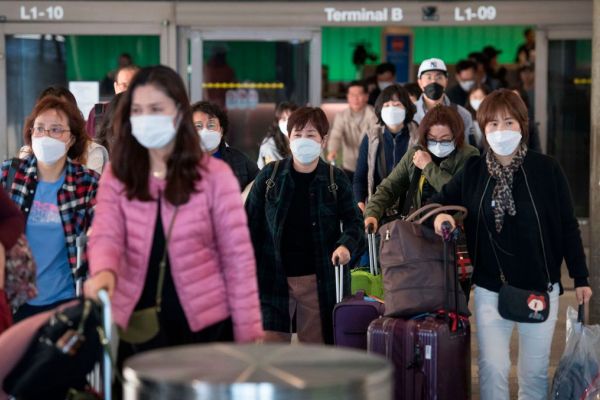Why haven’t flights from China been grounded?

The World Health Organisation (WHO) has declared a global emergency as the number of confirmed coronavirus cases edges towards 8000.
At least 170 people have died from the virus in China, while in Australia there are now nine confirmed cases.
WHO Director-General Dr Tedros Adhanom Ghebreyesus made the declaration after a crisis meeting in Switzerland.
The disease originated from the city of Wuhan which remains in complete lockdown, with no one allowed to come or go.
The Australian government is still waiting on permission from Beijing to evacuate hundreds of Australians who are trapped there and move them into quarantine on Christmas Island.
Despite the global risk, flights are still pouring into Australia from other regions of China, with Alan Jones questioning why we’re taking the risk.
“Given that every region of mainland China has now confirmed cases, and that Russia have closed their entire 4300km border far-eastern border with China… why haven’t you grounded every flight from China to Australia?” Alan asks.
Minister Payne says they are listening to the experts and taking every necessary precaution.
“The absolutely clear medical advice is that it is not recommended at this stage. The epicentre of this coronavirus remains Hubei Province and Wuhan in particular.
“The Australian Health Protection Principal Committee have repeatedly advised us that stopping all flights from China is not recommended at this stage.
“And, in fact, no other country has stopped all flights from China. We have the highest level of precautions of any country in the world.”
Click PLAY below to hear the full interview
Australia’s Deputy Chief Medical Officer Professor Paul Kelly has also defended the decision not to stop all flights from China.
“I would reiterate that the vast majority of the numbers of cases so far are in Hubei Province, and there are no flights directly to Australia from Wuhan.
“Let’s take Beijing as an example, there are about 100 confirmed cases there, a population of several million people, so [infection] is highly unlikely.”
Click PLAY below to hear the full interview
Image: Getty/Mark Ralston



